A recent piece on GreetechMedia.com describes how California based third-party logistics provider Dreisbach Enterprises has seen cost savings and performance improvements after installing Viking Cold’s long-duration thermal energy storage (TES) technology.
Jason Dreisbach, the owner of Dreisbach Enterprises, explains why his company selected Viking Cold’s technology from a range of available energy-efficiency and demand-response programs.
“What Viking Cold has allowed us to do is [to avoid] sub-cooling to the degree that we had, and then ride it out for much longer,” he explains in the report. “Instead of six hours, we ride 12 or 13 hours, six days a week, without turning on our more major compressors.” The result is a 22-month payback period instead of 36, with a range of additional benefits – increased employee comfort, reduced operations and maintenance costs, and improved temperature stability.
The Greentech Media piece also discusses the success of TES technology in the San Diego Food Bank. Since installing Viking Cold’s thermal energy storage system, the food bank has been able to shut down compressors overnight and leverage its onsite solar array to power more of the refrigeration during the day while reducing its morning peak to generate energy savings of nearly 40%.
The business landscape for long-duration thermal energy storage is shifting, the story reports. Dozens of utilities now offer incentives to support the installation of TES technologies, the TES market is growing, and Viking Cold’s sales teams see increasing numbers of inbound inquiries.
As James Bell, President and CEO of Viking Cold Solutions, is quoted as saying, “Down the road, I see this looking like insulation did 100 years ago. Now you wouldn’t even consider a building without insulation. Going forward, why would anyone build a temperature-controlled facility without the efficiency and resiliency of TES?”
To read the full story, click here. Or contact us today to learn how our long-duration storage solution will save you energy and money.

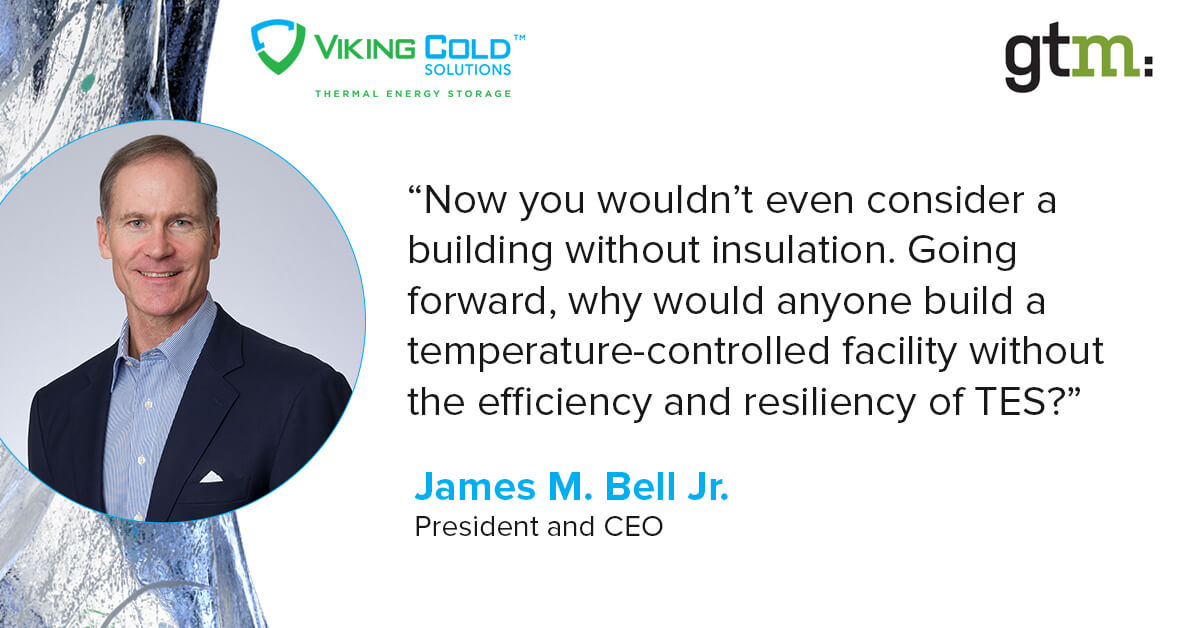
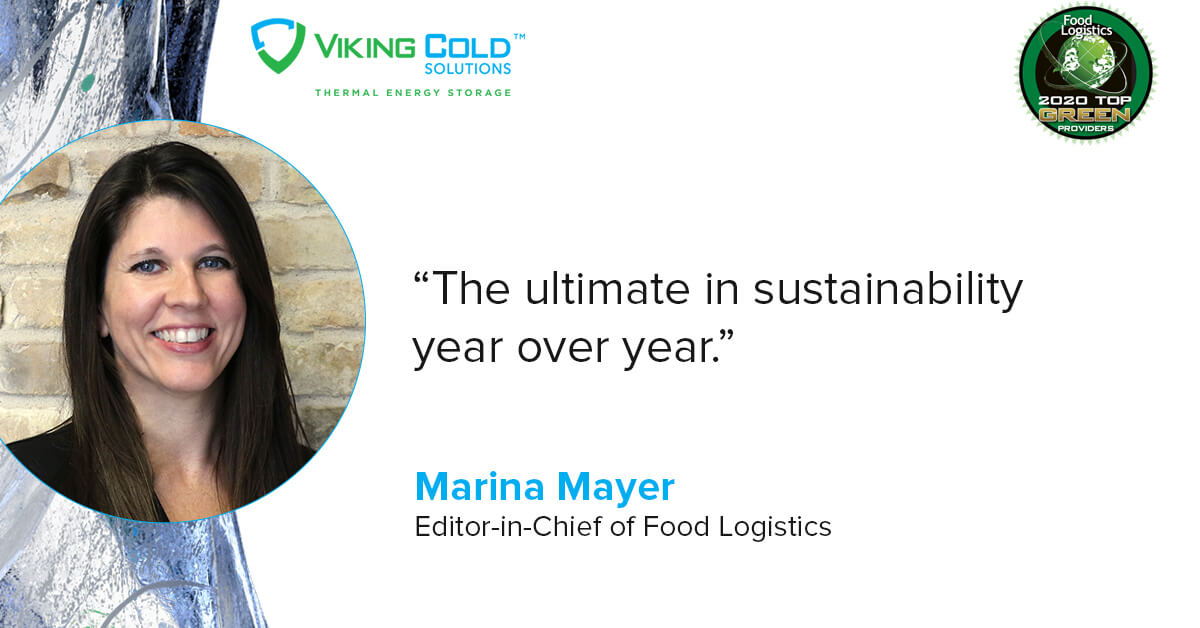

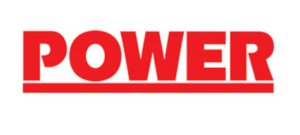

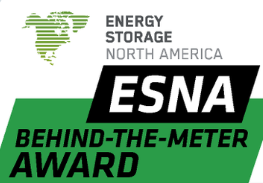
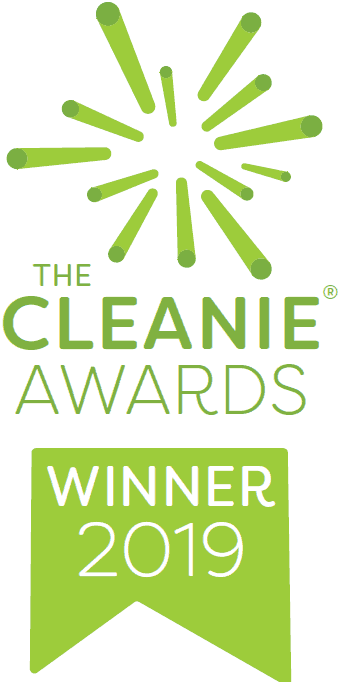
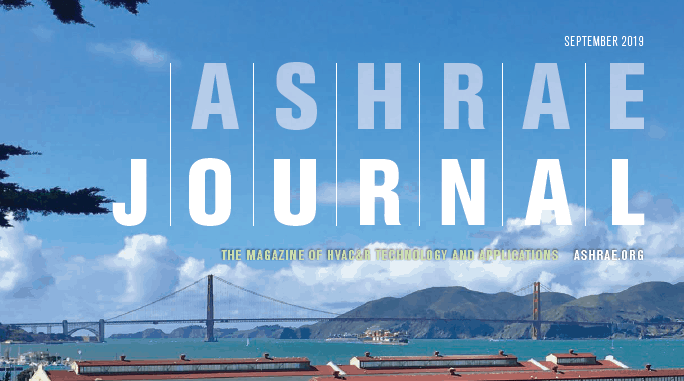
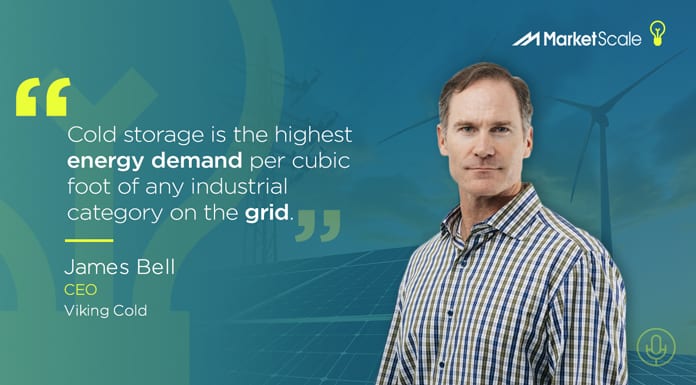 On the MarketScale Energy podcast, President & CEO James Bell explores risk reduction in the cold chain. Dealing with frozen food has a lot of inherent risks: which include the enormous and continuous energy required to safely store frozen food, the variable and continually increasing energy prices, potential loss of power due to increasingly more common natural disasters, refrigeration system mechanical failures, and ultimately liability for lost or damaged product. Thermal Energy Storage (TES) can address each of these issues to add resiliency and efficiency, as well as reduce risks in the storage of frozen food applications.
On the MarketScale Energy podcast, President & CEO James Bell explores risk reduction in the cold chain. Dealing with frozen food has a lot of inherent risks: which include the enormous and continuous energy required to safely store frozen food, the variable and continually increasing energy prices, potential loss of power due to increasingly more common natural disasters, refrigeration system mechanical failures, and ultimately liability for lost or damaged product. Thermal Energy Storage (TES) can address each of these issues to add resiliency and efficiency, as well as reduce risks in the storage of frozen food applications.